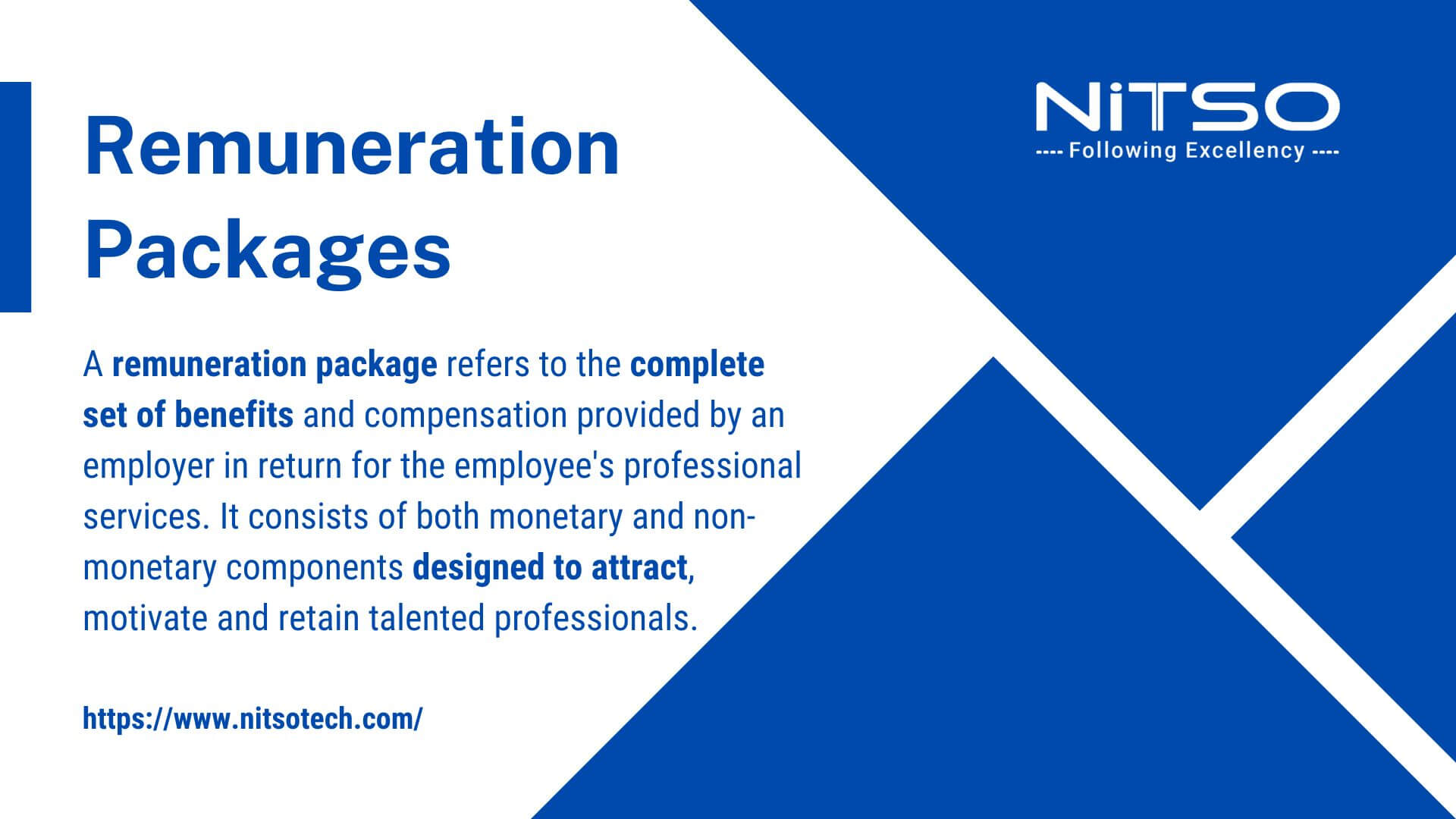Are you unhappy with the salary offer you just received? Most candidates simply accept the initial number stated, but negotiation is expected in India. With the right approach, you can often increase your starting remuneration and improve other aspects of the package too.
In fact, one survey found that over 40% of job seekers did not negotiate at all, losing out on higher pay.
This guide will walk you through key strategies to confidently negotiate and get the compensation you deserve.
Content On This Page
How to Negotiate for a Remuneration Package in India?
1. Know Your Value
Before you even start negotiating, you need to have a clear sense of your market worth. Take time to research typical compensation for someone with your skills, experience and qualifications in your geographic location and industry. There are several ways to benchmark your value:
- Check salary databases like PayScale, Glassdoor, Indeed and LinkedIn Salary which share average pay ranges for different roles. Look for your specific position, level of seniority, and years of experience.
- Network with contacts in your field to understand what the going rate is for your role at various companies. Connect with former colleagues who have recently switched jobs and openly discuss compensation.
- Review job listings matching your profile, focusing on the stated salary bands. This shows what employers are willing to pay.
- If already employed, consider your own company’s pay scale and recent raises. Are you being compensated fairly?
- For senior roles, you may want to engage a recruiting firm to assess your market worth and provide negotiation guidance.
- Reflect honestly on your skills, credentials, management experience and recent accomplishments to gauge your value relative to peers.
Having multiple data points on realistic salary ranges empowers you to set reasonable expectations. You should anchor negotiations in market evidence rather than arbitrarily chosen numbers. Know your worth before making any counteroffers.
2. Do Your Research
Before entering negotiations, learn as much as possible about the company, role and compensation landscape:
- Research the employer’s size, revenue, growth trends, work culture and industry reputation. Factors like faster growth and prestigious status may support higher pay.
- Understand the scope of the role, required skills and expected impact. Roles requiring niche expertise or managing sizable teams/budgets can warrant higher pay.
- Review the job description for must-have qualifications. If you significantly exceed stated requirements, highlight that in negotiations.
- Look at the employer’s geographic location. Salary norms vary greatly between regions, even within the same country.
- Check the company’s Glassdoor reviews and LinkedIn profiles to get a sense of typical pay for your level of role there. But take anonymous reviews with a grain of salt.
- Try to learn their compensation philosophy. Some startups offer lower base pay but higher equity. Established corporates may pay higher base salaries.
- Ask the recruiter for the pay range or bands for the role before your first interview. This signals you expect fair compensation.
In your research, look for any competing job offers you have, relevant skills supply/demand data or industry events supporting a higher ask. Knowledge is power in negotiation, so gather key insights upfront.
3. Build Your Case
When negotiating your compensation, be ready to clearly convey why you deserve a competitive offer with examples and evidence.
- Quantify your accomplishments in your current and past roles to showcase your value. For example, highlight performance metrics you’ve improved, major projects delivered, revenue generated, costs reduced, etc.
- Describe specific expertise highly relevant to this role that makes you stand out, like technical skills, industry knowledge, professional certifications, advanced degrees, fluency in certain languages, etc.
- Share examples of how you drove exceptional outcomes for your employer through creativity, initiative, collaboration skills, leadership abilities, or other strengths.
- Outline ways you would create a significant impact in this new role based on their business needs and your capabilities.
- If you have competing offers, detail those without disclosing confidential details. That provides leverage.
- Emphasize intangibles you would bring like strong cultural fit, work ethic, team spirit and commitment to the employer’s mission.
- For senior roles, calculate cost savings, revenue growth or other financial impact you could generate based on your track record.
Backing up your case with clear evidence builds credibility and shows why you warrant a strong offer.
4. Know the Full Package
When negotiating your remuneration, look beyond just base salary. The total compensation package includes other key elements.
- Base salary – This is the core element, but still only one piece of the puzzle.
- Bonuses – Many employers offer annual bonuses based on individual and company performance. Understand eligibility and potential payout.
- Equity compensation – Startups may provide stock options or restricted stock units. Know the vesting schedule and projected value.
- Retirement contributions – Some companies match employee 401k or RRSP contributions up to a certain percentage. That’s free money.
- Health insurance – Ask about premiums, deductibles, co-pays, eligible dependents and coverage levels. This gets costly.
- Time off – Compare vacation days, sick days, holidays and policies around unpaid leave. Generous time off is valuable.
- Perks/benefits – Inquire about things like gym subsidies, free meals/snacks, transit benefits, tuition assistance, etc.
- Professional development – Seek support for training, conferences, certificates, and post-graduate programs.
- Flexible work – Ask about telecommuting, compressed schedules, and part-time options. Work-life balance matters.
Getting a complete view of the remuneration package allows you to negotiate on multiple fronts and maximize overall value.
5. Make a Well-Timed First Offer
When asked about your expected salary, avoid throwing out the first number. Here are some tips:
- Politely defer the question by saying you want to gain a full understanding of the role’s responsibilities and total compensation package first.
- If pressed, provide a broad range based on your research to date, but note it is still preliminary. For example, “I’m targeting between $X and $Y for base salary based on what I’ve seen in the market, but I still have more due diligence to do on the details of this role”.
- State you are flexible on compensation structures and are open to discussing how base, bonus, equity, benefits and perks can be combined to create the best package.
- Reaffirm your interest in finding the right mutual fit for both parties beyond just the initial salary number.
- Once the employer presents their offer, you will be in a much stronger position to negotiate specifics having avoided being anchored to an early figure.
Making the first offer dramatically weakens your leverage. Delay providing a number as long as possible by redirecting the focus to your capabilities, potential value and the shared goal of reaching suitable terms.
6. Be Ready to Counteroffer
When you receive the initial offer, avoid accepting it right away. Instead, make a friendly counteroffer:
- Thank the employer and express enthusiasm for the opportunity. Start positive.
- Reaffirm your strong capabilities and potential to add value in this role based on the examples and evidence previously outlined.
- Detail the aspects of the offer that you hoped would be stronger, such as base salary, bonus potential, equity compensation, retirement contributions, time off, flexible work arrangements, etc. Provide market data or competing offers that support a higher number.
- Suggest changes or alternatives to get the terms closer to your expectations. For example, propose a 5% higher base salary but with a lower annual bonus target.
- If countering on salary, boost your ask by 10-20% above their figure to leave room for upward movement. Then meet somewhere in the middle.
- Ask for time to consider the offer if needed. Negotiations may go back and forth a few times.
- Frame the discussion as finding a mutually agreeable package, not just boosting your pay. Show flexibility around their needs as well.
With patience and persistence, constructive counteroffers can lead to win-win salary terms. But stay poised and positive. The tone should not feel demanding or adversarial.
7. Close on Positive Terms
When salary negotiations stall, carefully weigh whether the final offer still works for you even if not ideal. If the employer won’t move higher but the role is still appealing, accepting may be best. Declining could cut you out of consideration. Be prepared to compromise within reason, while still advocating for fair terms aligned to your value.
If their final offer simply remains too low despite your efforts, then declining politely may be the right move. Thank the employer for their time and reaffirm your interest in the role, but explain that the compensation gap is still too wide at this stage. Keep the door open for revisiting terms in the future if possible.
With patience and preparation, many candidates can successfully negotiate improved salary offers without severing the relationship. Approach talks professionally, back up your requests, and recognize that rarely does any first offer represent one’s true market worth. Employers expect negotiation. With the right balance of confidence, evidence and flexibility, you can often achieve a remuneration package that reflects your value.
Key Takeaway
With the right mindset and skills, you can negotiate win-win terms in India. Do your homework, make a compelling case, and recognize negotiation as a normal part of the hiring process. Aim for an agreement where both sides feel good about the final deal.
If you approach talks professionally and back up your requests, you stand a strong chance of increasing your starting remuneration package. Negotiating just a 5% higher salary in year one could mean earning over ₹200,000 more in total over five years.
Frequently Asked Questions (FAQs)
Is it okay to negotiate salary in India?
Yes, salary negotiation is both expected and acceptable in India. Don’t shy away from trying to improve the initial offer.
When should I disclose my current or desired salary?
Delay sharing specific numbers as long as possible. Give a broad range instead or say you’re still evaluating the role’s full compensation landscape.
How much of a salary increase is reasonable to ask for?
Aim for a 10-20% bump from the initial offer as your counter, but keep requirements flexible. Meet in the middle.
Should I negotiate more vacation time instead of a higher salary?
Extra time off can be valuable but focus first on optimizing base pay and bonus potential before other perks.
What if the recruiter says the offer is non-negotiable?
Respond politely that you understand, but are exploring options that better align with your experience. Keep the door open.
When accepting an offer, can I still negotiate later?
Try to negotiate upfront before accepting if possible. Once hired, revisiting salary quickly is harder.
How do I decline an offer without burning bridges?
Thank them sincerely for the offer, compliment the team, but explain the gap between their terms and your needs.
Should I counteroffer multiple times if they stand firm?
Stick to 2-3 counters max. At some point, you need to accept their limit or walk away. Don’t overplay your hand.








0 Comments